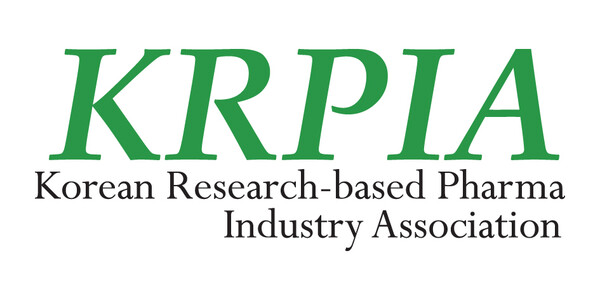The Korean Research-based Pharma Industry Association (KRPIA) called for the 22nd National Assembly, which is set to open on Thursday, to "improve treatment environment to patient-oriented one and create a pharmaceutical ecosystem that reflects the innovative value of new drugs that extend people's healthy life spans" in Korea that has entered into an ultra-low birthrate and a superaged society.
Noting that both the ruling and opposition parties have pledged to actively support the development of the pharmaceutical and biotechnology industry and enhance access to treatment for patients with serious and rare diseases through their general election pledges, KRPIA also called for legal and institutional support for the nation to grow into a true healthcare powerhouse.

On Tuesday, the association of foreign pharmaceutical companies operating in Korea made these and other calls through a position paper titled "Request to the 22nd National Assembly."
First, KRPIA said there is a need to strengthen access to new drugs and create a customized Korean policy that eliminates blind spots in treatment for people with severe and rare diseases.
It meant that the Second Comprehensive National Health Insurance Plan, which the government announced in February, and the ruling and opposition parties’ election pledges, should be realized and implemented as soon as possible to improve access to new drugs for patients with severe and rare diseases.
To this end, the association proposed expanding the priority review targets for innovative drugs for severe and rare diseases with high public demand and introducing a Korean-style fast-track registration system for ultra-high-priced innovative drugs, i.e., a post-settlement system of supporting first and paying later.
In the current situation where it takes about four years for Korean patients to receive the benefits of globally launched drugs, it is necessary to provide a policy foothold for new drugs with proven effectiveness to be provided more quickly to severe and rare diseases in need of treatment, a KRPIA official explained.
In addition, the association noted that in a society with an ultra-low birthrate and superaged population, a virtuous cycle of rapid patient access to treatment should be established by ensuring the innovative value of new drugs that contribute to extending people's healthy life span, reducing direct and indirect costs to society, and establishing a sustainable drug cost follow-up system.
As practical measures for this, KRPIA suggested shortening the period for enrollment of innovative new drugs to the level of developed countries, flexibly applying economic evaluation for pioneering new drugs, and expanding the economic evaluation exemption system to expedite their introduction.
In Germany and Japan, for instance, the average time required to reimburse new drugs is about a quarter to half that of Korea. Many developed countries also reflect the innovation and value of new drugs in their drug introduction and follow-up management systems.
"Above all, the post de facto management system, which is considered to be a major problem of the Korean drug pricing system, can increase social overhead costs and hinder patient access to new drugs due to duplicate price reduction mechanisms, so it is necessary to improve the system appropriately from a mid- to long-term perspective," KRPIA emphasized.
The association also commented on improving the health insurance spending structure.
According to a study published last year analyzing Korean health insurance spending structure, the expenditure on 227 new drugs approved in Korea over the past 10 years (2012-2021) accounted for only 8.5 percent of the total drug expenditure and 2.1 percent of the total medical expenditure.
Contrary to popular perception, new medicines account for a much smaller share of health insurance financing, and there is an urgent need for alternative health insurance financing that prioritizes innovative medicines to improve access, it noted.
The KRPIA said, “Korea should continuously expand the state's responsibility for stabilizing health insurance finances and explore separate financing options to strengthen the safety net for treating serious and rare diseases."
Finally, KRPIA said, "We agree with the importance of shared growth and open innovation between Korean and global companies in the pharmaceutical and biotechnology industry, and to further accelerate this process, a window of continuous communication and cooperation between the government and the global pharmaceutical industry should be established."
"The will of the National Assembly to improve patient access to treatment and foster the industry through the recognition of the value of new drug innovation has been confirmed through the pledges made in the general election," KRPIA Chair Bae Kyung-eun said. "As the 22nd National Assembly opens, Korea will develop into a true biopharmaceutical powerhouse when concrete legal support and policy cooperation for 'improving the patient-centered treatment environment' is provided."

